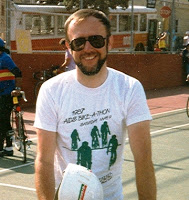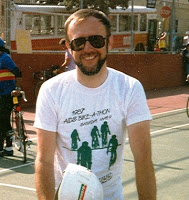A singer has settled into my neighborhood. I heard him the other morning as the first gray feathers of dawn lightened the eastern sky. Every morning very early he starts his quest way before I am ready to start mine for that day. Sometimes he’s close enough to wake me from a sound sleep—like outside my window. It’s a robin, I think, and he is looking for a mate. He will sing out his sweet, melancholy notes until he finds one.
It’s clearly a song he’s singing, not just bird chatter chirping away. There’s a melody and a pattern that he repeats over and over. In some sort of bird language I imagine him singing, “I am here. I am here for you. Come and find me or let me find you so we can make beautiful love together.”
This spring morning ritual comes from a bird not normally thought of as a songbird, like a canary. It’ll go on for another month or so and then the robin will return to his normal quiet with an occasional chirp or tweet. But for now he needs to communicate and let the world know where he is.
When Jamie and I designed our wedding ceremony, we included a favorite poem by a friend of ours. It goes like this: “When I have bidden/ farewell to Time,/ what claim might win me entry/ into Bliss? /Just this:/ foolish and sinful as I was,/ my true Love heard my song/ and I heard His.”
Songs, like poetry and other writing, are a form of communication and not just entertainment. Singing is one way we have of defining ourselves, reaching out to others, and establishing our place in the world.
Australian native people have a thing called the Songlines in which they navigate their surroundings by singing songs in a precise sequence to find local landmarks such as waterholes that tell them just where they are. These navigations also guarantee their survival in a vast and harsh land. Some songlines are short, some span long routes and use different languages. Beyond being a navigational tool, the songs also tell of a people’s place in the world. They are sometimes even called Dreamlines. Bruce Chatwin, a gay writer, traced many of the Aboriginal songs and dreams in his 1986 book The Songlines.
Every Monday afternoon, we gather here and sing our songs to each other. By telling our stories that are our individual songs, we announce our place in the world. We are defining ourselves by our stories, our tales, our songs. We are noting the landmarks in our vast landscapes as we say who we are, where we’ve been and what we’ve done. We are saying that we are here, we are here for each other and for whomever wants to join us. And maybe we have been there too. Watch out for that danger; be ready for great joy when you make it up that hill; when that happened to me, this is what I did about it. Our stories tell of our shared experiences as a community and a people. Our stories are creating, as well as reflecting, our lives.
To all those like us, we say, join the song. You don’t have to be a songbird to join in. You just have to want to let your presence be known so we can find each other in the dim light of a spring dawn in a hard land.
About the Author
Nicholas grew up in Cleveland, then grew up in San Francisco, and is now growing up in Denver. He retired from work with non-profits in 2009 and now bicycles, gardens, cooks, does yoga, writes stories, and loves to go out for coffee.









